Chaotic scene as Republicans disrupt impeachment deposition

Republicans briefly brought the Democrat-led impeachment investigation to a halt when around two dozen GOP House members stormed into a closed-door deposition with a Defense Department official. Democrats said the move compromised national security because some of the Republicans took electronic devices into a secure room. The protest by Republican lawmakers on Wednesday captured national attention, drawing the focus away from the testimony of a top U.S. diplomat who told lawmakers just a day earlier that he was told President Donald Trump was withholding military aid from Ukraine unless the country’s president pledged to investigate Democrats. The maneuver delayed a deposition with Laura Cooper, a senior Defense Department official who oversees Ukraine policy, until midafternoon. The interview began roughly five hours behind schedule, after a security check by Capitol officials, and ended after roughly four hours. As a series of diplomats have been interviewed in the impeachment probe, many Republicans have been silent on the president’s conduct. But they have been outspoken about their disdain for Democrats and the impeachment process, saying it is unfair to them even though they have been in the room questioning witnesses and hearing the testimony. “The members have just had it, and they want to be able to see and represent their constituents and find out what’s going on,” said Ohio Rep. Jim Jordan, the top Republican on the House Oversight and Reform panel. That committee is one of three leading the investigation, and its members are allowed into the closed-door hearings. Lawmakers described a chaotic scene. Rep. Debbie Wasserman Schultz, Democrat – Florida, said she had just walked into the room when the Republican lawmakers blew past Capitol police officers and Democratic staffers. The staff member who was checking identification at the entrance was “basically overcome” by the Republicans, she said. “Literally some of them were just screaming about the president and what we’re doing to him and that we have nothing and just all things that were supportive of the president,” Wasserman Schultz said. Later when the deposition began, Cooper answered questions from lawmakers and staffers in response to a subpoena, an official working on the impeachment inquiry said. She explained to lawmakers the process of distributing military aid and was asked whether the appropriate steps were followed on Ukraine, according to a person familiar with the interview. The official working on the impeachment inquiry and the person familiar with the interview spoke on the condition of anonymity to discuss the closed-door testimony. “The president’s allies in Congress are trying to make it even more difficult for these witnesses to cooperate,” said Adam Schiff, the chairman of the House intelligence committee. Democrats deny that Republicans are being treated unfairly, noting they have had equal time to question witnesses and full access to the meetings. Schiff says closed-door hearings are necessary to prevent witnesses from concealing the truth and has promised to release the transcripts when it will not affect the investigation. They also said the Republicans — several of whom do not sit on one of the three committees — compromised security at Wednesday’s closed-door deposition. The interviews are being held in what is called a Sensitive Compartmented Information Facility, or SCIF, which is a secure room where members can hear classified information. Several lawmakers leaving the facility said that some of the Republicans had their cellphones, even though electronics are not allowed. All members of Congress are familiar with the protocol of the SCIF, since they are often invited to classified briefings, and there are several such rooms around the Capitol. Several Republicans appeared to be tweeting from the secure room. North Carolina Rep. Mark Walker tweeted: “UPDATE: We are in the SCIF and every GOP Member is quietly listening.” Rep. Bennie Thompson, Democrat – Mississippi, who chairs the House Homeland Security Committee, alleged that Republicans “intentionally brought their electronic devices” into the secure area, violating congressional rules and the oath they take to gain access to classified information. The “unprecedented breach of security raises serious concerns” for committee chairs who maintain secure facilities in the Capitol, Thompson wrote in a letter to the House sergeant at arms asking for action to be taken against members of Congress involved in the breach.Sen. Lindsey Graham, Republican – South Carolina, criticized his Republican colleagues for the tactic, calling them “nuts” to make a “run on the SCIF.” “That’s not the way to do it,” he said. Graham later tweeted that he initially believed Republicans had taken the room by force and that it was actually a “peaceful protest,” adding his House GOP colleagues had “good reason to be upset.” The Republicans who took part in the protest were unbowed. Rep. Steve Scalise, the No. 2 House Republican, said Democrats are running a “Soviet-style process” that should “not be allowed in the United States of America.” “We’re not going to be bullied,” he said. The standoff came the day after William Taylor testified that he was told Trump withheld military aid to Ukraine until the country’s president went public with a promise to investigate Democrats. Trump wanted to put Ukraine’s leader “in a public box,” Taylor recalled. Democratic Rep. Ted Lieu of California said Republicans did not want to hear from Cooper because they were “freaked out” by that testimony. “They know more facts are going to be delivered that are absolutely damning to the president of the United States,” Lieu said. Associated Press writers Alan Fram, Robert Burns and Padmananda Rama contributed to this report. By Michael Balsamo and Mary Clare Jalonick Associated Press Republished with the permission of the Associated Press.
FEMA Chief, former Alabama leader, Brock Long faces multiple investigations
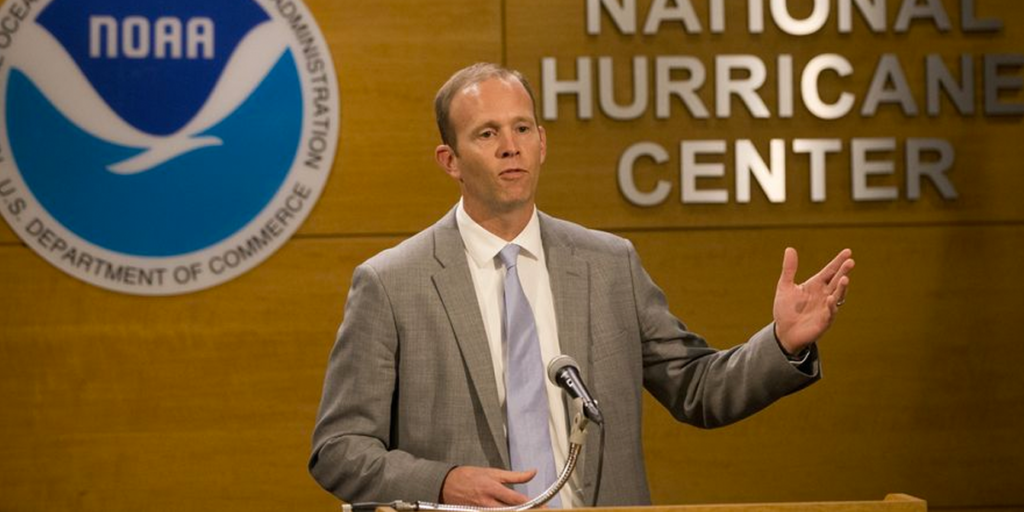
A Department of Homeland Security (DHS) inspector general (IG) investigation into Federal Emergency Management Agency (FEMA) Chief Brock Long, is being referred to federal prosecutors to determine whether or not criminal charges should be pursued, the Wall Street Journal reported Monday afternoon. Meanwhile, House Republicans are launching an investigation of their own into the FEMA Chief’s alleged actions. News broke last week of allegations against Long, the former director of the Alabama Alabama Emergency Management Agency (AEMA), for misusing government cars. According to POLITICO, who originally broke the story, “Long started using a staff driver to get him home to North Carolina at the beginning of his tenure at FEMA last year. On the weekends Long spent in North Carolina, aides were put up in a hotel at taxpayer expense, according to one of the current officials.” House investigation South Carolina-Republican U.S. Rep. Trey Gowdy, chairman of the House Oversight and Government Reform Committee, heard last week’s news and on Monday wrote Long a letter requesting documentation and other pertinent information related to his use of government vehicles. Gowdy gave Long a deadline of Oct. 1. “Official travel on the part of federal employees must be ‘by the most expeditious means of transportation practicable’ and ‘commensurate with the nature and purpose of the employee’s duties,’” Gowdy explained in the letter to Long. “This does not include using government-owned or government-leased vehicles for exclusively personal reasons.” Specifically Gowdy asked Long to: Identify each time you have used a government-owned or government-leased vehicle during your tenure at FEMA for personal reasons. For each usage, please provide the names of all FEMA staff who accompanied you, destinations, accommodations, dates of use, purpose, and cost of each trip. Produce policies relating to the use of government-owned or government-leased vehicles. All documents and communications referring or relating to FEMA employees being tasked with accompanying you on trips to or from North Carolina. Long denies any wrong-doing. “I would never intentionally run a program incorrectly,” Mr. Long told reporters during a call last Thursday. “Doing something unethical is not in my DNA.” He briefly addressed the investigation during a Thursday FEMA briefing as well. “Bottom line is, we’ll continue to fully cooperate with any investigation that goes on and own up to any mistakes and push forward and keep going,” he said. “I would never intentionally run a program incorrectly,“ Long added. “Doing something unethical is not part of my DNA and it is not part of my track record in my whole entire career. We will work with the OIG.”
House investigators demand details on private emails

A top House Republican has demanded details on the use of private emails by some of President Donald Trump‘s closest advisers. Rep. Trey Gowdy, a South Carolina conservative who chairs the House Oversight and Government Reform Committee, and the top Democrat on that panel, Rep. Elijah Cummings, cite a recent Politico report that Jared Kushner set up a private email account after the election to conduct work-related business. The New York Times reports that at least six of Trump’s closest advisers, including Kushner, Steve Bannon and Reince Priebus, used private email to discuss White House matters. Bannon and Priebus no longer work at the White House. During the 2016 presidential campaign, Trump repeatedly attacked Democratic opponent Hillary Clinton for setting up a private email server as secretary of state, a decision that prompted an FBI investigation that shadowed her for much of the campaign. Gowdy is best known for his two-year investigation into the 2012 attacks in Benghazi, Libya, in which he focused heavily on Clinton’s role as secretary of state. In letters Monday to White House general counsel and State Department, Gowdy and Cummings said they want details on all employees. “With numerous public revelations of senior executive branch employees deliberately trying to circumvent these laws by using personal, private, or alias email addresses to conduct official government business, the committee has aimed to use its oversight and investigative resources to prevent and deter misuse of private forms of written communication,” the lawmakers wrote. White House press secretary Sarah Huckabee Sanders had no immediate comment Tuesday on the request by Gowdy and Cummings. “All White House personnel have been instructed to use official email to conduct all government-related work,” she said. “They are further instructed that if they receive work-related communication on personal accounts, they should be forwarded to official email accounts.” Sanders told reporters Monday that the use of private email accounts by staff was “to my knowledge, very limited.” “White House counsel has instructed all White House staff to use their government email for official business, and only use that email,” she said, adding that “we get instructed on this one pretty regularly.” Kushner’s lawyer, Abbe Lowell, on Sunday confirmed Kushner’s use of a personal email in his first few months of the administration. He said the emails usually involved news articles and political commentary. Lowell also said any non-personal emails were forwarded to Kushner’s official account and “all have been preserved in any event.” Sanders would not say whether the White House would release Kushner’s private emails that dealt with government business. Republished with permission from the Associated Press.
Democrats want GOP committee head to open up ethics meeting
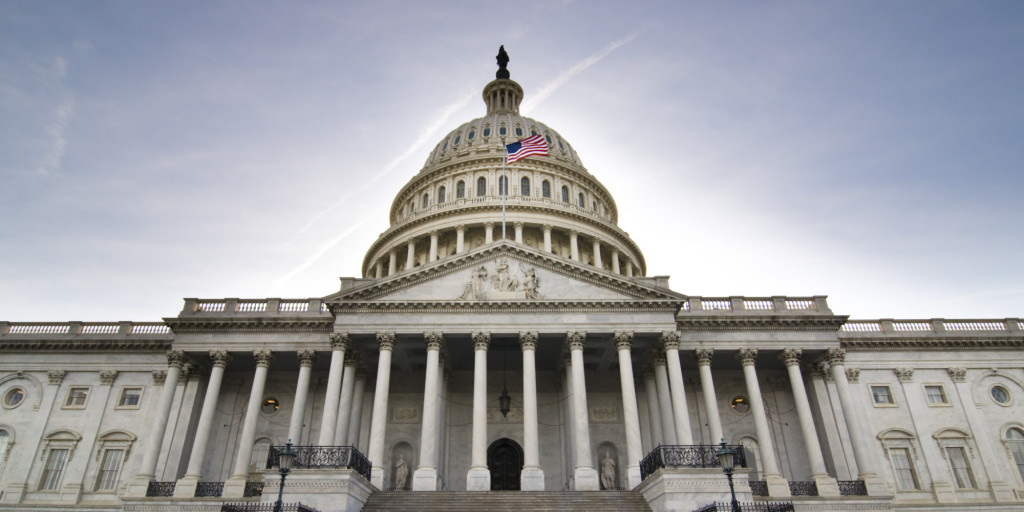
Democrats want all members of the House Oversight and Government Reform Committee to participate in a private meeting with the director of the Office of Government Ethics, and are frustrated that the Republican chairman has targeted the official for raising questions about President-elect Donald Trump’s possible conflicts of interest. In a letter Thursday, Rep. Elijah Cummings, D-Md., asked that Rep. Jason Chaffetz, R-Utah, invite all committee members to the Monday meeting with Walter Shaub Jr. Currently, the meeting is not open to the public, and Chaffetz and Cummings are the only lawmakers scheduled to attend. Chaffetz summoned Shaub to Capitol Hill after the ethics official challenged some of Trump’s business arrangements. Last week, Shaub issued a scathing review of Trump’s plan to turn over control of his business to his sons, saying the only way Trump could avoid a conflict of interest as president would be to divest from his business and have his assets placed in a blind trust. Chaffetz has said Shaub is acting unethically by offering opinions on conflicts of interest without fully researching the circumstances. Democrats have countered that Chaffetz is engaging in a coordinated effort to undermine the office responsible for ethics reviews of Cabinet nominees and ensuring they will avoid conflicts of interests. “Since you will not allow the American people to witness the meeting with Director Shaub, I am requesting that you at least allow the other members of our committee to participate — including Democrats and Republicans,” Cummings wrote. “I cannot think of any reason to deny all members of our committee the opportunity to hear first-hand what Mr. Shaub has to say.” A spokeswoman for Chaffetz said she had no comment on Cummings’ letter. Earlier this week, Shaub wrote Chaffetz and asked for the meeting to be public. “I believe passionately that ethics matters and that if Americans do not have confidence that their government leaders’ decisions are free from conflicts, the integrity of our government suffers,” Shaub wrote. Republished with permission of the Associated Press.
GOP lawmaker: FBI gave immunity to top Hillary Clinton aide
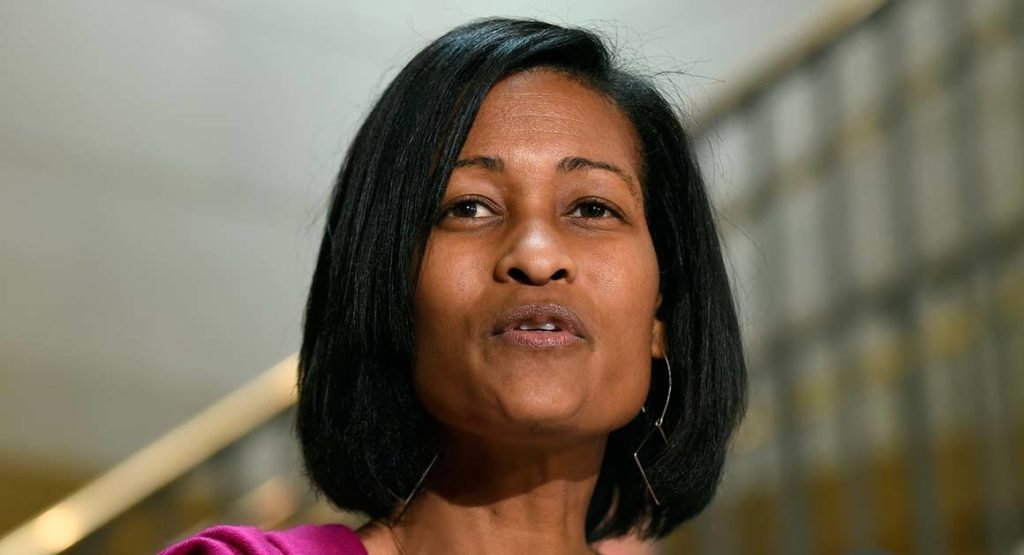
Hillary Clinton‘s former chief of staff, Cheryl Mills, and two other staff members were granted immunity deals in exchange for their cooperation in the now-closed FBI investigation into Clinton’s use of a private email server as secretary of state, says a Republican congressman. Rep. Jason Chaffetz, chairman of the House Oversight and Government Reform Committee, told The Associated Press on Friday that Mills gave federal investigators access to her laptop on the condition that what they found couldn’t be used against her. Democrats on the committee said Friday the immunity agreements were limited in scope and did not cover statements made to investigators or to potential testimony before Congress. Still, Chaffetz said he was “absolutely stunned” that the FBI would cut a deal with someone as close to the investigation as Mills. By including the emails recovered from the laptops in the immunity agreements, the Justice Department exempted key physical evidence from any potential criminal case against the aides. “No wonder they couldn’t prosecute a case,” said Chaffetz, R-Utah. “They were handing out immunity deals like candy.” Copies of the immunity agreements were provided to the House oversight committee by the Justice Department this week under seal. Clinton campaign spokesman Brian Fallon accused House Republicans of “trying to make something out of nothing by rummaging through the files of a Justice Department investigation that was closed months ago without any charges whatsoever, and leaking selective details three days before the first presidential debate.” “Congressman Chaffetz continues to abuse his office by wasting taxpayer dollars to try to second-guess the FBI in what amounts to a desperate attempt to boost Donald Trump’s chances against Hillary Clinton,” Fallon said. A yearlong investigation by the FBI focused on whether the Democratic presidential nominee sent or received classified information using the private server located in the basement of her New York home, which was not authorized for such messages. FBI Director James Comey said in July that his agents hadn’t found evidence to support any criminal charge or direct evidence that Clinton’s private server had been hacked. He suggested that hackers working for a foreign government may have been so sophisticated they wouldn’t have left behind any evidence of a break-in. Chaffetz said in addition to Mills, others granted immunity include John Bentel, then-director of the State Department’s Office of Information Resources Management, and Heather Samuelson, Clinton’s executive assistant. Beth Wilkinson, the lawyer representing Mills and Samuelson, said the immunity agreements show investigators considered her clients “to be witnesses and nothing more.” “The Justice Department assured us that they believed my clients did nothing wrong,” Wilkinson said. “At all points my clients cooperated with the government’s investigation, including voluntarily participating in interviews with the FBI and DOJ.” The latest revelation brings the total number of people who were granted immunity as part of the FBI’s investigation to at least five. It had previously been reported immunity had been granted to Bryan Pagliano, a tech expert who set up Clinton’s email server, as well as Paul Combetta, a computer specialist for a private firm that later maintained Clinton’s email setup. Chaffetz said he is looking forward to asking Comey questions about the immunity deals when Comey testifies Wednesday before the House Judiciary Committee. Chaffetz is also a member of that panel. Mills, who was among Clinton’s closest confidants, voluntarily appeared last year for a lengthy interview as part of the House GOP’s investigation into the 2012 attack on a U.S. diplomatic compound in Benghazi, Libya, that left three Americans dead. Pagliano and Combetta, however, have refused to testify before Congress by invoking their Fifth Amendment rights against self-incrimination. On Thursday, the GOP-led House oversight committee voted along party lines to hold Pagliano in contempt of Congress for failing to comply with its subpoena. Disappointed the FBI didn’t recommend criminal charges, congressional Republicans are seeking to keep the issue of Clinton’s email use alive through the November election. Clinton has called her use of the private server a mistake. Congressional Democrats accused Republicans of playing politics. “The facts are that Ms. Mills cooperated fully with the Justice Department and Congress, the FBI concluded that there was no basis for any criminal prosecution,” said Rep. Elijah Cummings of Maryland, the ranking Democrat on the oversight committee. In a statement, the campaign of the Republican presidential nominee criticized both Clinton and the Justice Department. “No one with judgment this bad should be allowed to serve as president of the United States or hold any public office,” Trump spokesman Jason Miller. “What has become abundantly clear is that the Obama Administration is protecting Hillary Clinton from accountability at all costs because she will keep the rigged system in Washington in place.” Republished with permission of the Associated Press.
Hillary Clinton camp pushes back as GOP challenges FBI, seeks probe
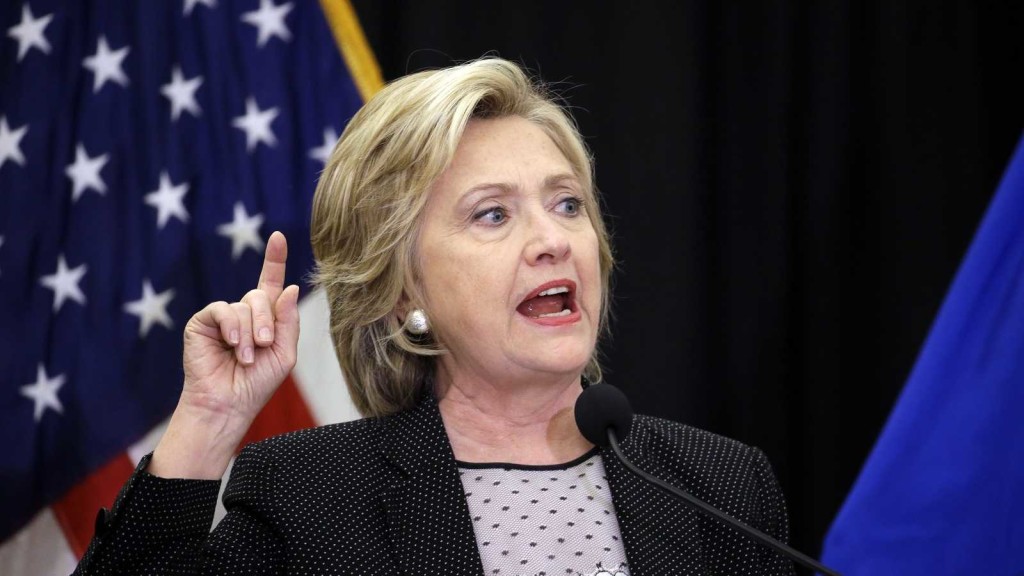
Hillary Clinton‘s campaign is pushing back against congressional Republicans who have challenged the FBI’s decision not to pursue criminal charges against the Democratic presidential nominee and have pressed for yet another investigation. Having failed to find evidence to support their claims that Clinton was negligent in preventing or stopping the deadly 2012 terrorist attack on the U.S. diplomatic facility in Benghazi, Libya, Republicans are now focused on whether Clinton shaded the truth about her haphazard handling of emails containing government secrets. Furious the FBI didn’t press charges against their political rival, House GOP members asked the agency for notes from its agents’ July interview with Clinton. The FBI provided Congress on Tuesday with a raft of documents from its yearlong investigation that it wrapped up last month. Republicans claim the FBI notes, which are typically kept confidential, may show Clinton provided inconsistent answers to questions about her handling of emails containing classified information during testimony last year before the House Benghazi panel. Democrats, meanwhile, expressed concern that the Republicans would leak snippets of the classified materials carefully selected to make the presidential candidate look bad without providing a fair account of what happened. Clinton spokesman Brian Fallon said Tuesday the campaign would like the FBI notes to be publicly released in full. “This is an extraordinarily rare step that was sought solely by Republicans for the purposes of further second-guessing the career professionals at the FBI,” Fallon said. “We believe that if these materials are going to be shared outside the Justice Department, they should be released widely so that the public can see them for themselves, rather than allow Republicans to mischaracterize them through selective, partisan leaks.” A spokeswoman for the Republican-led House Oversight and Government Reform Committee said that the panel’s staff is reviewing documents that are classified as secret. Rep. Adam Schiff of California, the top Democrat on the House Intelligence Committee, said in a statement that the panel received “FBI witness interview reports, including that of Secretary Clinton’s interview, along with other materials from the FBI’s now closed investigative file.” The FBI, in a statement, made clear that it expected lawmakers to use the documents for oversight and not to selectively leak details three months before the election. “The material contains classified and other sensitive information and is being provided with the expectation it will not be disseminated or disclosed without FBI concurrence,” the agency said. The FBI last month closed its yearlong probe into whether Clinton and her aides mishandled sensitive information that flowed through a private email server located in the basement of her New York home. Though he described Clinton’s actions as “extremely careless,” FBI Director James Comey said his agents found no evidence of criminal wrongdoing. Clinton said last year that she turned over all 55,000 pages of work-related emails from her server, but said she deleted thousands more she and her lawyers deemed as personal. Clinton also says she never sent any information by email that was marked as classified. More than 100 emails exchanged by Clinton were subsequently reviewed and determined to contain information considered classified. As evidence Clinton lied, Republicans point to three email chains forwarded to Clinton that contained paragraphs marked “(C),” signifying they contained classified information. Rep. Elijah E. Cummings, the ranking Democrat on the House oversight committee, said Clinton did not originate the three email chains in question, which were forwarded to her private account by aides. He said only one of those emails was later determined by the State Department to contain classified information. “The FBI already determined unanimously that there is insufficient evidence of criminal wrongdoing,” said Cummings, D-Md. “Republicans are now investigating the investigator in a desperate attempt to resuscitate this issue, keep it in the headlines, and distract from Donald Trump’s sagging poll numbers.” State Department spokesman Mark Toner said Tuesday that the FBI allowed the department to review emails the agency is providing Congress. “I think we’re satisfied after having reviewed these emails that the FBI has made arrangements that the documents will be transmitted subject to appropriate handling controls,” he said, adding that the department respects the FBI’s desire to accommodate the requests of its congressional oversight committees. Toner said, however, that the department is still discussing with the FBI the release of additional notes from the interviews investigators did with Clinton and her aides. The announcement comes as the conservative group Judicial Watch announced that it would receive copies of thousands of previously undisclosed work-related emails sent or received by Clinton. The emails, recovered as part of the FBI’s probe, were recently returned to the State Department. Republished with permission of the Associated Press.
Gary Palmer joins resolution to impeach IRS Commissioner John Koskinen
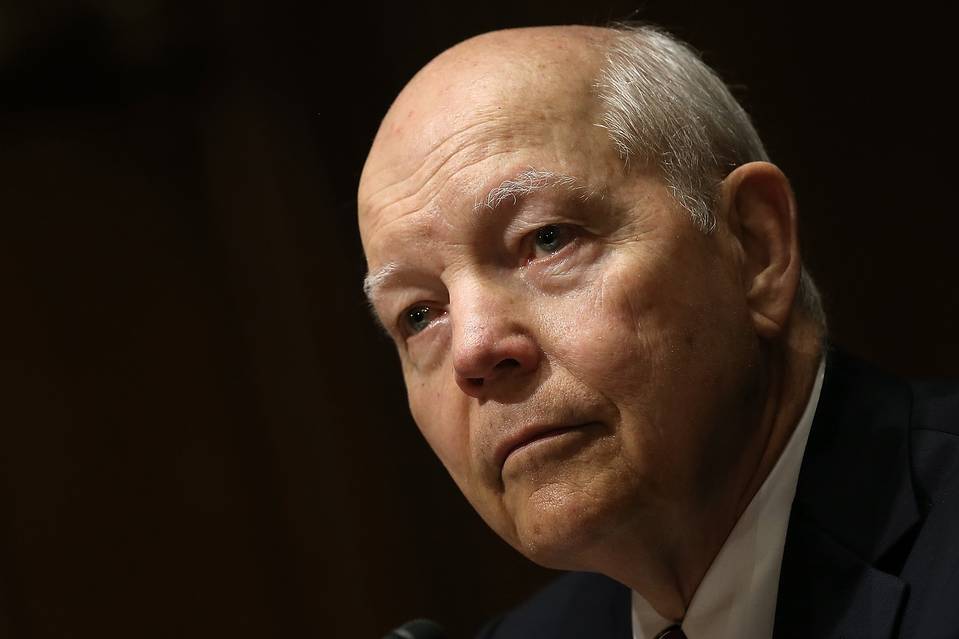
Alabama Congressman Gary Palmer (AL-06) and 18 other Republican members of the House Oversight and Government Reform Committee introduced a resolution Tuesday to start impeachment proceedings against IRS Commissioner John Koskinen. “Mr. Koskinen has repeatedly provided misleading testimony to Congress and has failed to comply with a Congressional subpoena,” said Rep. Palmer. “This behavior is unacceptable, particularly for someone in such a powerful position.” In introducing the resolution, House Oversight and Government Reform Committee Chairman Rep. Jason Chaffetz (R-UT) said, “Commissioner Koskinen violated the public trust. He failed to comply with a congressionally issued subpoena, documents were destroyed on his watch, and the public was consistently misled. Impeachment is the appropriate tool to restore public confidence in the IRS and to protect the institutional interests of Congress. This action will demonstrate to the American people that the IRS is under repair, and signal that Executive Branch officials who violate the public trust will be held accountable.” According to the Committee’s press release, Commissioner Koskinen violated the public trust in the following ways: Failed to comply with a subpoena resulting in destruction of key evidence. Commissioner Koskinen failed to locate and preserve IRS records in accordance with a congressional subpoena and an internal preservation order. The IRS erased 422 backup tapes containing as many as 24,000 of Lois Lerner’s emails – key pieces of evidence that were destroyed on Koskinen’s watch. Failed to testify truthfully and provided false and misleading information. Commissioner Koskinen testified the IRS turned over all emails relevant to the congressional investigation, including all of Ms. Lerner’s emails. When the agency determined Ms. Lerner’s emails were missing, Commissioner Koskinen testified the emails were unrecoverable. These statements were false. Failed to notify Congress that key evidence was missing. The IRS knew Lois Lerner’s emails were missing in February 2014. In fact, they were not missing; the IRS destroyed the emails on March 4, 2014. The IRS did not notify Congress the emails were missing until June 2014 – four months later, and well after the White House and the Treasury Department were notified. Before going the impeachment route, Palmer along with 51 members of Congress, called on President Barack Obama to remove Commissioner Koskinen back in July. The White House failed to respond to their request.
Robert Bentley testifies before Congress on Alabama prison reforms
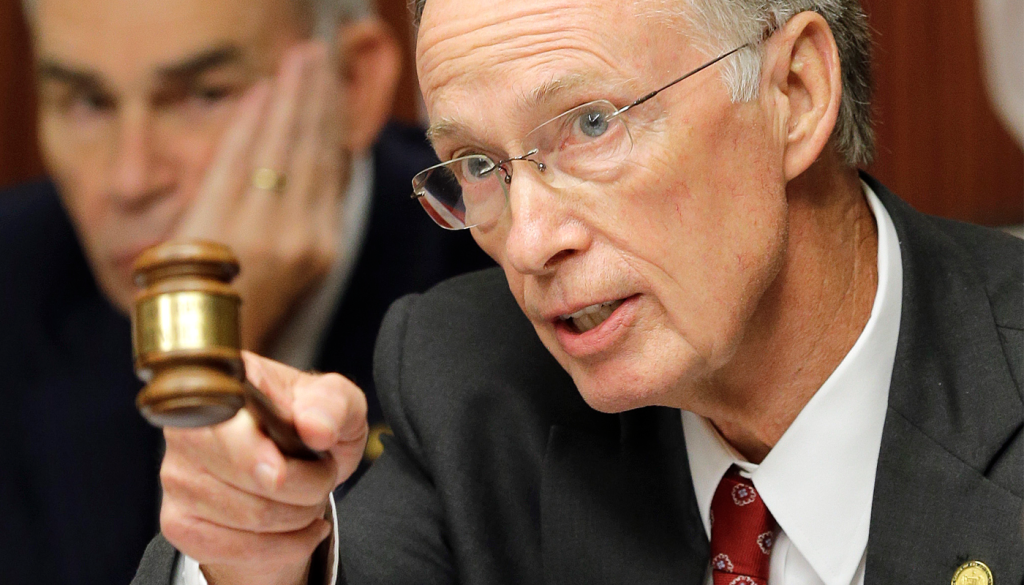
Gov. Robert Bentley on Tuesday testified before a U.S. House panel on the topic of recent reforms in the Alabama statehouse designed to limit long prison sentences for nonviolent offenders and increase inmate rehabilitation efforts, to reduce rates of recidivism and the high cost of housing the state’s incarcerated population. In a statement shortly after a hearing of the House Oversight and Government Reform Committee, Bentley touted Alabama’s reforms as a model for the nation. “Prison reform is an important issue in Alabama,” Bentley said. “Alabama has made significant progress over the last year to improve our criminal justice system, ease some of the challenges in our prison system and maximize the amount of state dollars we spend for the Alabama Department of Corrections. “I believe that our prison reform efforts have created a healthy foundation that can, over time, transform the landscape of the entire criminal justice system for the better.” Alabama, in turn, is following suit on a larger national push for “smart justice,” involving changes to federal sentencing guidelines, a move away from mandatory minimums to give more discretion to judges and focusing on giving former inmates viable alternatives away from criminal activity. Bentley praised congressional leaders for opening its doors to state leaders like him, invoking the old saw about states being the “laboratories of democracy.” “States can be laboratories of changes, creating unique opportunities that can address problems. I believe that Alabama is a national model for prison reform, and it was an honor to share our efforts with Congress,” Bentley said in a prepared statement. The move comes just a day after legislative leaders in Arizona called on Alabama Rep. Mike Jones for counsel on the changes he helped institute along with Sen. Cam Ward during the regular Legislative Session. Jones said on the occasion of his visit to the Grand Canyon state that he, too, hopes Alabama’s recent amendments to its criminal code can help show a way forward for a nation whose prison system is clogged with nonviolent offenders.

